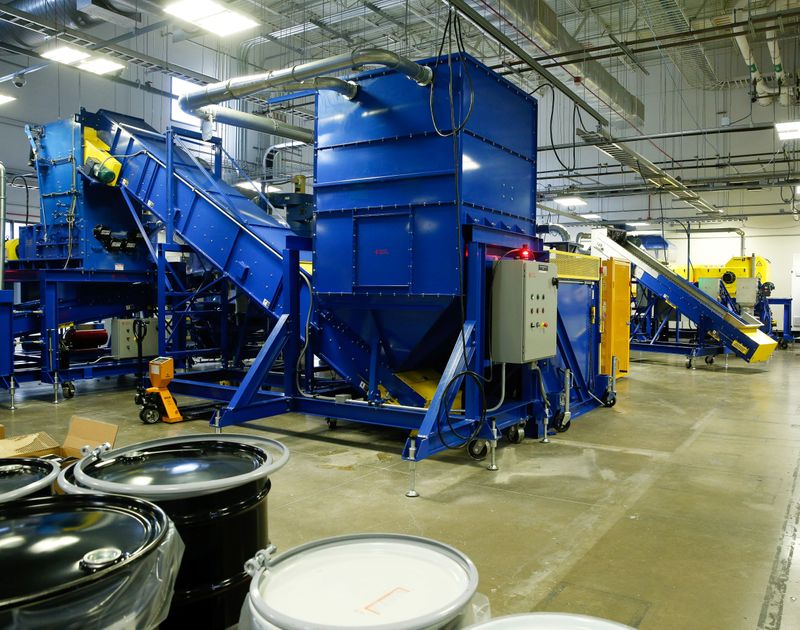By Lucia Mutikani
WASHINGTON (Reuters) - New orders for key U.S.-made capital goods increased more than expected in June and shipments accelerated, but the gains were likely insufficient to avert the deepest plunge in business investment and economic activity since the Great Depression in the second quarter because of the COVID-19 pandemic.
Orders for non-defense capital goods excluding aircraft, a closely watched proxy for business spending plans, jumped 3.3% last month, the Commerce Department said on Monday. These so-called core capital goods orders rose 1.6% in May and remained below their pre-pandemic level. Orders last month were boosted by strong demand for machinery, fabricated metals, primary metals and electrical equipment, appliances, and components.
Economists polled by Reuters had forecast core capital goods orders advancing 2.3% in June. Core capital goods orders fell 2.3% on a year-on-year basis in June.
Shipments of core capital goods surged 3.4% last month. Core capital goods shipments are used to calculate equipment spending in the government's gross domestic product measurement. Core capital goods shipments rose 1.6% in May.
Stocks on Wall Street opened slightly higher amid hopes of more stimulus to revive the economy. The dollar fell against a basket of currencies. U.S. Treasury prices rose.
Economists expect business spending contracted at its sharpest pace on record in the second quarter, which would mark the fifth straight quarterly decline.
According to a Reuters survey of economists, GDP collapsed at a 34.1% annualized rate last quarter, which would be the sharpest contraction in output since the government started keeping records in 1947. The economy contracted at a 5.0% rate in the January-March quarter, the deepest since the 2007-09 recession.
The government will publish its snapshot of second-quarter GDP on Thursday. The closure of nonessential businesses in mid-March to slow the spread of the coronavirus almost ground the economy to a halt, with most of the effects felt in April.
Activity has rebounded as businesses reopened, but the nascent recovery is being threatened by a resurgence in cases of the respiratory illness across the country. Some authorities in the hard-hit South and West regions have either shut down businesses again or paused reopenings.
Orders for durable goods, items ranging from toasters to aircraft that are meant to last three years or more, increased 7.3% in June after rebounding 15.1% in May. Durable goods orders were driven by strong demand for motor vehicles, which led to a 20% rise in orders for transportation equipment after a 78.9% surge in May.
Orders for motor vehicles accelerated 85.7%. That followed a 28.8% increase in May. Orders for civilian aircraft tanked 462.3%. Boeing (N:BA) reported only one aircraft order last month after receiving nine in May, according to information posted on its website.

The planemaker reported this month that customers canceled orders for 355 of its 737 MAX jets in the first half of 2020, as the damage done by the jet's grounding and the coronavirus crisis to the airline industry mounted. Boeing has been hurt by the fallout from two crashes in Indonesia and Ethiopia, which led to the grounding of its best-selling plane since March 2019.